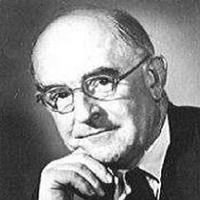- Sir Thomas Beecham
- Evgenia Papadimas
- Brno
- Ulvi Cemal Erkin
- Paris Philharmonie
- Jean-Michel Désiré
- James Curnow
- Fedde ten Berge
 DISCUSSION: John Dante Prevedini leads a discussion about Classical Music and Politics, including contributions from Béla Hartmann and James Ross.
DISCUSSION: John Dante Prevedini leads a discussion about Classical Music and Politics, including contributions from Béla Hartmann and James Ross.
 SPONSORED: Ensemble. Unjustly Neglected - In this specially extended feature, Armstrong Gibbs' re-discovered 'Passion according to St Luke' impresses Roderic Dunnett.
SPONSORED: Ensemble. Unjustly Neglected - In this specially extended feature, Armstrong Gibbs' re-discovered 'Passion according to St Luke' impresses Roderic Dunnett.
All sponsored features >>
Makoto Moroi
Avant-garde Japanese composer Makoto Moroi was born in Tokyo on 17 December 1930, the son of composer Saburo Moroi. He graduated in 1952 from Tokyo Geijutsu Daigaku (Tokyo University of the Arts), having studied composition with Tomojiro Ikenouchi. His education also included the study of Gregorian chant (with Paul Anouilh) and Renaissance and Baroque music (with Eta Harich-Schneider). From 1955 until 1956 he worked at the electronic music studio in Cologne.
His output included operas (including The Stars of Pythagoras, of 1959), choral, orchestral, concertate, chamber and instrumental music, plus a few works for tape, including Seven variations, on which he collaborated with Toshiro Mayazumi in 1956. Many works in different genres made use of Japanese instruments. An example is his Spacephonic Music for Japanese Traditional Instruments. Moroi was at his most avant-garde in his 1964 text-sound work kusabira, about a man whose house becomes overrun with mushrooms.
He was also known for bringing new techniques - twelve-tone, serialism and aleatoric music - to the notice of the Japanese public.
Makoto Moroi died on 2 September 2013, aged eighty-two.

